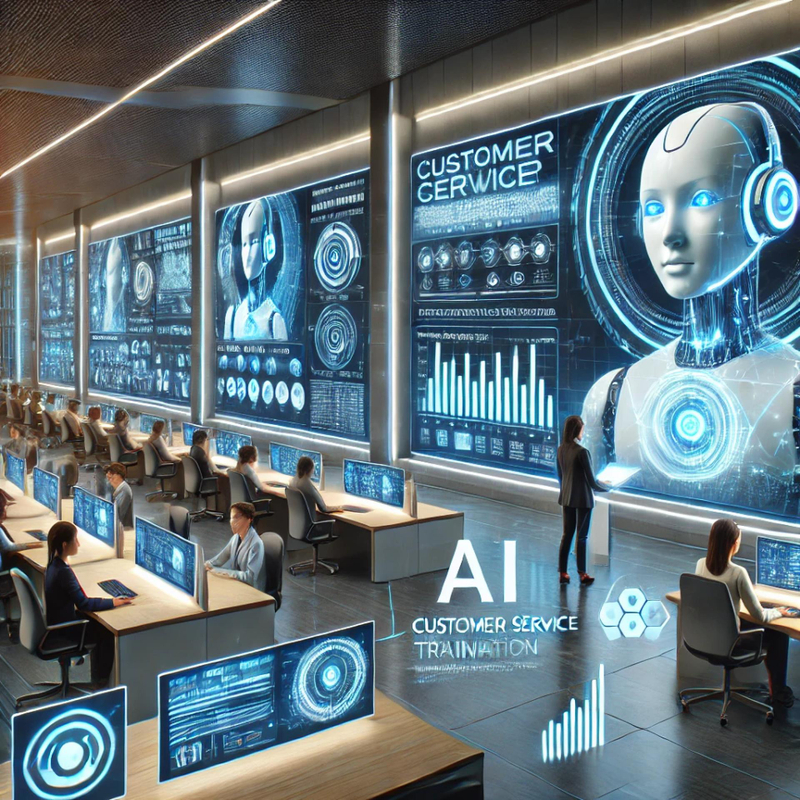Customer service has become a crucial differentiator for businesses. As customer expectations continue to evolve, organizations must ensure that their support teams are well-equipped to handle a wide range of interactions across multiple channels and languages.
However, traditional customer service training methods often fall short. Standardized training programs lack adaptability, are time-consuming, and fail to provide real-time insights that can enhance employee performance.
This is where AI-powered customer service training is making a significant impact. By leveraging intelligent training solutions, businesses can personalize learning experiences, provide real-time feedback, and enable continuous performance optimization.
One such AI-driven platform leading this transformation is VISTA AI, which offers interactive simulations, multilingual training, and automated performance tracking to ensure a seamless learning experience.
Why Traditional Customer Service Training is Ineffective
Most businesses still rely on training methods that have several limitations, such as:
- Lack of Personalization – Standardized training fails to address individual learning needs.
- Time-Consuming Processes – Traditional training requires weeks of onboarding and manual coaching.
- Scalability Issues – Expanding support teams globally demands consistent, multilingual training.
- Limited Real-Time Feedback – Employees often do not receive immediate insights to improve performance.
These challenges result in longer resolution times, inconsistent service quality, and higher customer churn rates. AI-driven training solutions offer a structured, real-time, and adaptive approach to learning.
How AI is Transforming Customer Service Training
AI-powered training platforms use machine learning to assess employee performance, create personalized training paths, and provide real-time feedback.
1. AI-Driven Simulations for Real-World Practice
Traditional training often fails to prepare employees for real customer interactions. AI-driven simulations allow agents to:
- Engage in dynamic, real-time customer conversations.
- Practice handling difficult customer interactions.
- Improve conflict resolution and problem-solving skills.
These AI simulations adjust the complexity and tone of interactions, ensuring that agents experience a wide range of scenarios before engaging with actual customers. This approach enhances agent confidence and preparedness, leading to better customer service outcomes.
2. Personalized Learning Paths for Every Agent
AI-powered training platforms analyze agent performance metrics and customer feedback to deliver customized learning modules. Instead of a one-size-fits-all approach, AI training adapts to each employee’s skill level and provides targeted learning experiences.
For example, an agent struggling with customer engagement may receive interactive training on building rapport, while a high-performing agent may focus on advanced problem-solving techniques.
This adaptive learning approach ensures that employees receive relevant training, improving knowledge retention and skill development.
3. AI-Powered Omnichannel Training
Modern customer service spans multiple communication channels, including:
- Phone
- Live chat
- Social media
AI-powered training solutions prepare employees to transition seamlessly between different support platforms, ensuring a consistent customer experience.
By providing structured omnichannel training, AI helps companies reduce response times, improve accuracy, and standardize service quality across all communication channels.
4. Multilingual AI Training for Global Teams
With businesses expanding globally, effective communication in multiple languages is essential. AI-powered training solutions offer multilingual support, enabling organizations to:
- Train employees in different languages without additional trainers.
- Simulate localized customer interactions.
- Adapt training content for different cultural contexts.
This ensures that agents can communicate effectively with international customers while maintaining professionalism and cultural sensitivity.
5. Automated Performance Evaluations and Feedback
AI-powered training platforms continuously track and evaluate employee performance based on key metrics such as:
- Response accuracy
- Customer sentiment analysis
- Average resolution time
Unlike traditional assessments, which are often delayed, AI-driven feedback is immediate and actionable. Businesses can quickly identify areas where employees need improvement and offer targeted coaching.
This automated approach saves time, ensures unbiased evaluations, and helps managers create individualized coaching plans to improve overall performance.
The Future of AI in Customer Service Training
AI-powered training platforms will continue to evolve, introducing advanced features such as:
- Real-Time AI Coaching – AI tools guiding agents during live customer interactions.
- AI-Powered Voice Coaching – Training modules focusing on speech clarity and conversational flow.
- Enhanced Emotional Intelligence Training – AI simulations improving agents’ ability to handle complex emotional interactions.
- Predictive Learning Models – AI detecting performance trends and recommending proactive training.
Organizations that invest in AI-driven training solutions today will be better positioned to optimize customer service operations and drive long-term success.
Final Thoughts: AI is the Future of Customer Service Training
AI-powered customer service training is not replacing human-led training—it is enhancing and optimizing the learning experience. With AI-driven solutions like VISTA AI, businesses can:
- Reduce training costs while improving knowledge retention.
- Provide personalized, real-world customer interaction training.
- Enable multilingual, omnichannel learning experiences.
- Automate performance tracking and real-time feedback.
As customer expectations continue to rise, AI-driven training will play a pivotal role in shaping the future of customer service. Companies that embrace AI-powered learning will not only improve efficiency but also ensure that their support teams deliver exceptional customer experiences.
Learn more about how AI is transforming customer service training today.



